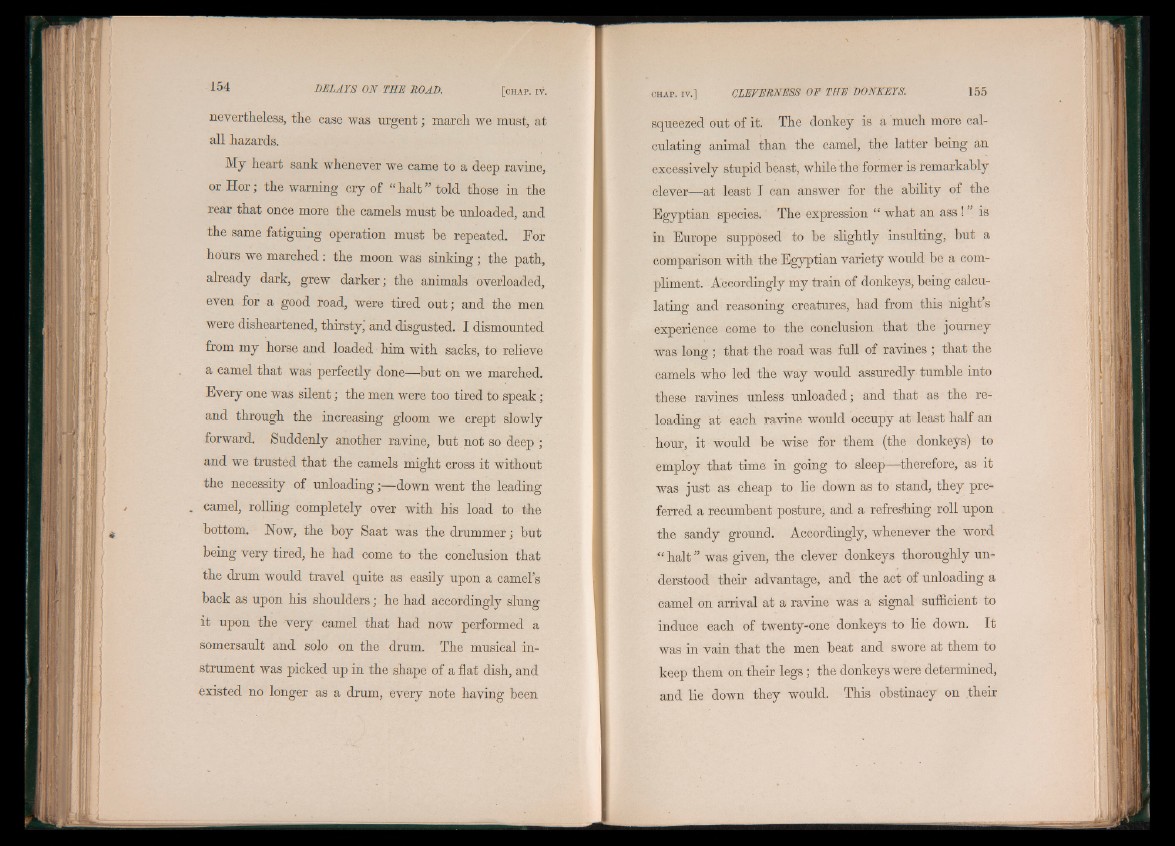
nevertheless, the case was urgent; march we must, at
all hazards.
My heart sank whenever we came to a deep ravine,
or Hor; the warning cry of “ h a lt” told those in the
rear that once more the camels must be unloaded, and
the same fatiguing operation must be repeated. For
hours we marched: the moon was sinking; the path,
already dark, grew darker; the animals overloaded,
even for a good road, were tired o u t; and the men
were disheartened, thirsty, and disgusted. I dismounted
from my horse and loaded him with sacks, to relieve
a camel that was perfectly done—but on we marched.
Every one was silent; the men were too tired to speak;
and through the increasing gloom we crept slowly
forward. Suddenly another ravine, but not so deep ;
and we trusted that the camels might cross it without
the necessity of unloading;—down went the leading
. camel, rolling completely over with his load to the
bottom. Now, the boy Saat was the drummer; but
being very tired, he had come to the conclusion that
the drum would travel quite as easily upon a camel’s
back as upon his shoulders; he had accordingly slung
it upon the very camel that had now performed a
somersault and solo on the drum. The musical instrument
was picked up in the shape of a flat dish, and
existed no longer as a drum, every note having been
squeezed out of it. The donkey is a much more calculating
animal than the camel, the latter being an
excessively stupid beast, while the former is remarkably
clever—at least I can answer for the ability of the
Egyptian species. The expression “ what an ass! ” is
in Europe supposed to be slightly insulting, but a
comparison with the Egyptian variety would be a compliment.
Accordingly my train of donkeys, being calculating
and reasoning creatures, had from this night’s
experience come to the conclusion that the journey
was long ; that the road was full of ravines ; that the
camels who led the way would assuredly tumble into
these ravines unless unloaded; and that as the reloading
at each ravine would occupy at least half an
hour, it would be wise for them (the donkeys) to
employ that time in going to sleep—therefore, as it
was just as cheap to lie down as to stand, they preferred
a recumbent posture, and a refreshing roll upon
the sandy ground. Accordingly, whenever the word
“ h a lt” was given, the clever donkeys thoroughly understood
their advantage, and the act of unloading a
camel on arrival at a ravine was a signal sufficient to
induce each of twenty-one donkeys to lie down. I t
was in vain that the men beat and swore at them to
keep them on their legs; the donkeys were determined,
and lie down they would. This obstinacy on their